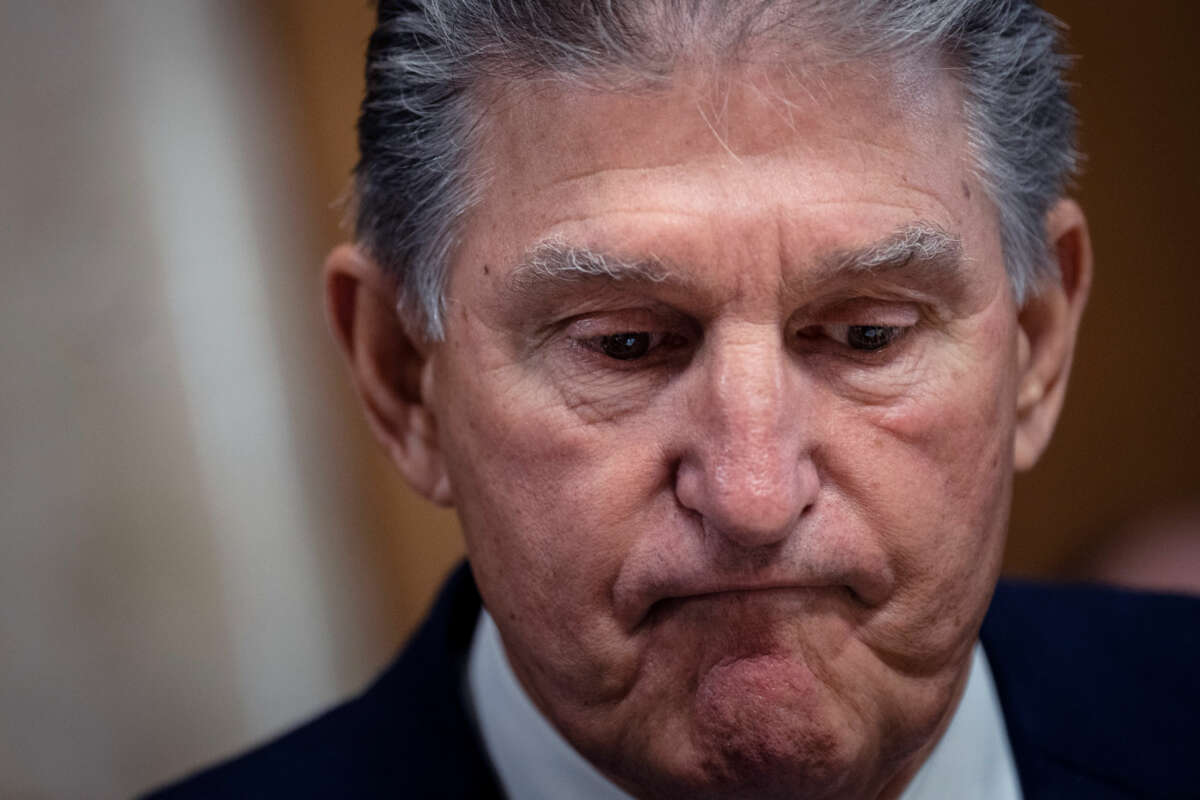This story was originally published by Grist. Subscribe to its weekly newsletter here.
In exchange for his help passing the most far-reaching climate law in U.S. history, Senator Joe Manchin hoped to fast-track a 303-mile natural gas pipeline that’s being built in his home state of West Virginia. Those hopes were dashed yet again on Monday, when a federal appeals court ruled that the pipeline’s threats to water quality have not been adequately accounted for.
The U.S. 4th Circuit Court of Appeals has frequently ruled against the Mountain Valley Pipeline, or MVP, which will deliver natural gas from the shale fields of northern West Virginia to southern Virginia, over the last few years. The pipeline requires permits demonstrating its compliance with environmental laws from a slew of state agencies in both Virginia and West Virginia as well as the federal government. Last year, the court revoked permits granted by the U.S. Forest Service, Bureau of Land Management, and Fish and Wildlife Service. When the pipeline company requested a new three-judge panel to reconsider its permits, the court shot down the request.
The latest legal skirmish is over whether the West Virginia Department of Environmental Protection inappropriately issued the pipeline company a compliance certificate required by the Clean Water Act. The litigants, which include the Sierra Club and the nonprofit Appalachian Voices, allege that the department did not adequately consider whether the pipeline would degrade water quality as well as the pipeline company’s compliance history. The project crosses a number of waterways, and its construction is estimated to affect about five miles of streams and 12 acres of wetlands. Despite state inspectors finding several water-quality violations and bringing enforcement action against the pipeline in recent years, the Department issued the certification. The court concluded that decision was “arbitrary and capricious” on Monday.
“[T]he Department’s conclusion that the pipeline project will not violate water quality standards appears wholly unreasonable,” the judges said. “None of the Department’s explanations either in this litigation, or — more importantly — in the certification itself reflect its reasonable assurance that MVP’s past violations will not be an impediment to its compliance with state water quality standards.”
Equitrans Midstream Corporation, the pipeline operator, has claimed construction is more than 90 percent complete. On a call with investors in February, CEO Thomas Karam said the company hopes to secure all the necessary permits this summer and finish construction this year.
The ruling may mean delays in that timeline. Without the water-quality certification from West Virginia, the U.S. Army Corps of Engineers cannot issue a related water-quality permit that the pipeline needs. The pipeline is also awaiting authorization from the U.S. Forest Service to cross the Jefferson National Forest, which is on the border between West Virginia and Virginia.
The pipeline has had some wins in the last month. The U.S. Fish and Wildlife Service issued a revised opinion last month finding that pipeline construction won’t harm the candy darter fish and five other threatened and endangered species. The 4th Circuit also upheld a water-quality certificate issued by regulators in Virginia last week.
Given the many roadblocks created by the 4th Circuit, Senator Joe Manchin attempted to move legal battles over the pipeline to the potentially more friendly D.C. Circuit Court last year. During negotiations over the Inflation Reduction Act, the sweeping legislation passed by Congress that is expected to dramatically reduce carbon emissions nationwide by the end of the decade, Manchin floated legislation that streamlined permitting for major energy projects. The proposal included a provision that exempted the Mountain Valley Pipeline from various environmental laws and gave the D.C. Circuit jurisdiction over future litigation. However, the legislation never gained traction in Congress.
In response to the 4th Circuit’s ruling this week, Manchin issued a statement calling it “infuriating to see the same 4th Circuit deal yet another setback for the Mountain Valley Pipeline project and once again side with activists who seem hell-bent on killing any fossil energy that will make our country energy independent and secure.”
Advocates who have long battled the pipeline and have brought multiple lawsuits against the project cheered the decision. “West Virginia communities have endured Mountain Valley Pipeline’s damage to their water resources and environment for far too long,” said Jessica Sims, Virginia field coordinator for Appalachian Voices, an environmental nonprofit, in a press release. “This ruinous project must be canceled.”
Join us in defending the truth before it’s too late
The future of independent journalism is uncertain, and the consequences of losing it are too grave to ignore. To ensure Truthout remains safe, strong, and free, we need to raise $27,000 in the next 24 hours. Every dollar raised goes directly toward the costs of producing news you can trust.
Please give what you can — because by supporting us with a tax-deductible donation, you’re not just preserving a source of news, you’re helping to safeguard what’s left of our democracy.
